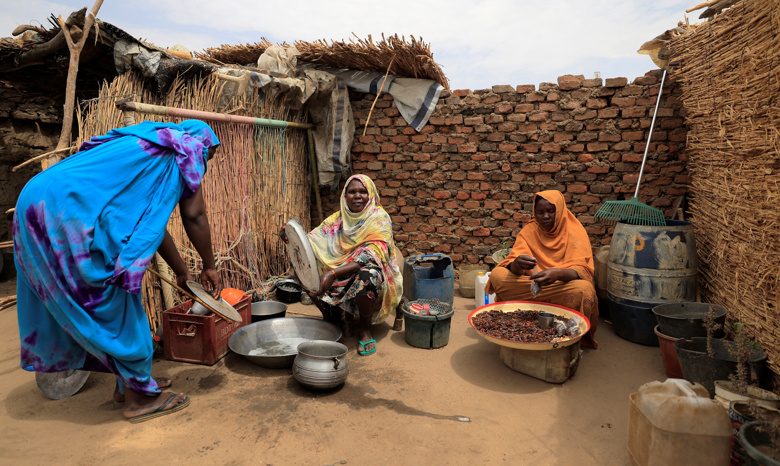There is no prospect of ending the conflict in Sudan after two months of fighting

Sudan’s two-month-old conflict loomed, with no sign of a solution in sight, as diplomatic peace efforts stumbled and the risks of a wider ethnic war mounted.
Fighting between the military and the RSF, which a U.S. diplomat earlier in the week described as “suicidal” behavior, has displaced 2.2 million people and claimed at least 1,000 lives, a figure medics say is understated.
The fighting has halted the economy, driven millions of Sudanese into hunger and dependency on foreign aid, and led to the destruction of the health system.
Fighting between the army and the RSF, which together ousted President Omar al-Bashir in 2019, began in the heart of Khartoum on 15 April after a row over integrating their forces into a new democratic transition.
“The western Darfur town of El Geneina has seen the worst of the fighting, with activists reporting 1,100 deaths and the UN saying 150,000 have fled to Chad.”
On Wednesday, the governor of West Darfur accused the Rapid Support Forces and allied Arab militias of carrying out a genocide in El Geneina.
Hours later, Abker was killed, and the Sudanese Alliance armed group he led accused the RSF of killing him while in their custody.
The Rapid Support Forces denied responsibility, saying Bakr had already turned to the troops but that rebel tribal elements “kidnapped the governor and assassinated him in cold blood”.
The death of Abkar, a Masalit, threatens to widen the fighting in El Geneina, which has already been paralyzed by the fighting.
“I saw many bodies in the streets and no one dared bury them,” said one man who asked not to be named.
“Fighting has broken out in the capitals of other Darfur states, including Nyala, El Fasher, Zalingei, and the towns of El Obeid and Kadugli in Kordofan, threatening to stir long-simmering ethnic tensions.”
“The longer the conflict goes on, the more it will end up taking an ethnic and regional dimension in… parts of the country,” said Suleiman Baldo of the Sudan Transparency and Policy Tracking Program.
“As the rainy season approaches, the already limited assistance and migration of hundreds of thousands from often-trekking war zones may be impossible.”
Failed Diplomacy
The Rapid Support Forces (RSF) evolved from Janjaweed militias and in 2017 became a legitimate government force under the leadership of General Mohamed Hamdan Daglo (Hemeti).
There is no sign of a reduction in fighting between the RSF and the army, which has carried out intense artillery and air bombardments.
Residents in Khartoum and the towns of Omdurman and Bahri said Thursday they had witnessed clashes, artillery shelling and air raids near residential areas.
“After many ceasefire agreements were not respected, U.S. diplomats acknowledged earlier this week that the Jeddah negotiations had not worked and were considering other ways.”
The Intergovernmental Authority on Development (IGAD), a regional organization in East Africa, this week launched a mediation effort chaired by Kenya to bring Hemeti and army chief Gen. Abdul Fattah al-Burhan together in a meeting that Ethiopia said it would host.
But in a statement issued Thursday, Sudan’s foreign ministry accused Kenya of sheltering the RSF and said it favored South Sudan taking the lead in the initiative.
“In Khartoum, residents of RSF soldiers and armed gangs were accused of looting homes.” “Walid Adam, a resident of eastern Khartoum, said two men, including one wearing a RSF uniform, appeared at his door with two Kalashnikov rifles.”
“They tampered with my house and stole my money,” he said.
The Violence Against Women Unit, a government agency, said the victims of most of the rapes it documented, which it said accounted for only two percent of the actual cases, were committed by men wearing RSF uniforms.
The RSF denied responsibility and said criminals and al-Bashir’s loyalists were known for stealing military uniforms.












